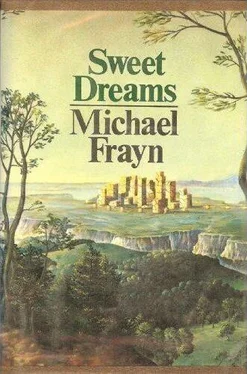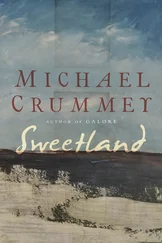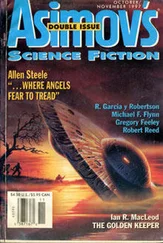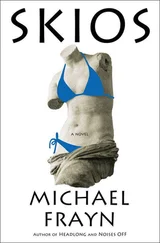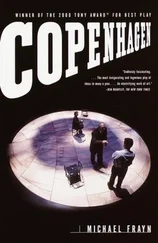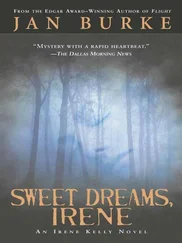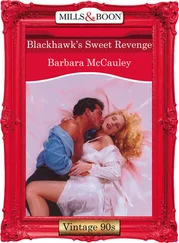Coming and going, at a cost of 16,450.00 and 34,200.00 and 122,000.00 per person, are cargoes of men in lightweight no-iron suits, and women with carefully underlined eyes and neat pairs of knees. They are examining the world’s bauxite reserves, investigating the potentialities of Gabon as a market for learning machines, using their influence to secure the release of political prisoners, setting up conferences to standardize labour law and regulations for contraceptive pills. They are maintaining contact with the world.
Aboard the plane bound for London, and wearing a pale grey lightweight no-iron suit, with pale blue shirt and striped silk tie, is Howard.
“I’ve got a research grant,” he explains to the man sitting next to him, who is wearing a dark grey lightweight no-iron suit, with a pale pink shirt and polka-dotted silk tie, as they at last climb out though the heat haze, and undo their seat belts. “It’s a kind of travelling fellowship, really. There are certain aspects of our involvement in the developing world which I feel need looking at. Is our aid getting through to where it’s most needed? Is it producing a client mentality? Are we managing to do any good?”
“High time someone started asking a few awkward questions,” says his neighbour, who turns out to be an expert in Moral Law. “Because they all hate us, you know. Never a word of thanks from any of them for all we’ve done. I honestly can’t see why we bother.”
“No … well …” says Howard tactfully. “I think there is a real problem in mutual communication here.”
“England, you’re looking at, are you?”
“I thought that would be as good a place to start as any. I speak the language, you see.”
“Do you? Good God.”
“Oh, I used to live there.”
“I can’t stand the people, myself,” says the moral lawyer. “Feckless lot of layabouts. Dishonest. Dirty. And too big for their boots, on top of everything else. There’s some very reasonable golf and fishing, though, if you know where to look for it. And the local woollens are good value. I always try to bring back a sweater for my wife, something like that.”
“I’m quite looking forward to seeing the place again,” says Howard, politely but firmly. He wonders how many of his fellow-countrymen visit Britain with this kind of attitude, undoing all the good work the rest of them are struggling to do. He ostentatiously orders a can of Worthington with his lunch, to show where his sympathies lie.
As they approach London they let down through the shining white floor of cloud into a dull grey light. Drops of rain run back across the windows, almost horizontally.
He had forgotten how small London is. As the car which has been sent for him comes in along the odd little elevated motorway, only four lanes wide, most of the city seems to be below eye-level. Later they wait at fussy complications of traffic lights. Dumpy Chinese girls walk past along the pavement carrying umbrellas and bags of washing. Elderly ladies with maroon hats fitting closely over tight grey curls turn slowly, dragging their sticks, to look at people who have passed by minutes before.
“I used to live in London,” Howard tells the driver, smiling.
“Oh, yes?” says the driver. He is wearing a faded navy-blue trench-coat with a collar that curls shrunkenly upwards. It looks like a school-child’s coat. His sandy hair is brushed straight back over his head, but then turns up a little at the ends, echoing the collar.
“I loved it,” says Howard. “Never wanted to leave.”
“Oh, well,” says the driver.
Howard struggles to suppress a sense of nothingness, of total unreality.
Things are pretty bad in Britain, Howard soon discovers, as he goes about questioning government officials. Phil was right — people are dying of everything, breaking their necks on level ground, and falling out of clean, empty air. Cancer is endemic. Heart disease is raging, as are arteriosclerosis and various lethal cere-brovascular conditions.
He remembers vaguely about all this from when he was living in the country. But then it seemed somehow natural and inevitable. There is a kind of fatalism in the atmosphere of this place which the officials he meets all seem to share. After his first horrified reaction has passed, Howard begins to think that this fatalism may be the only thing that keeps people sane.
“I see ninety-seven thousand, three hundred and seven people died last year of acute myocardial infarctions,” he remarks to an official in the Ministry of Health, trying to keep his tone conversational, as they go through the tables of statistics together. He watches the man closely to see how he reacts when he has to talk about this appalling figure. But he shows no signs of any reaction at all.
“I think that’s about average for Western Europe, isn’t it?” he says. “Shall I ask them to send some coffee in?”
He’s a decent sort of man — Howard knows his type well from his stay in the country. But while Howard sits there, trying not to think about those 97,000 piled corpses, he apparently sits there thinking about coffee.
“Four thousand, six hundred and twenty people died of aortic aneurysms (nonsyphilitic),” Howard reads out. “Two thousand, three hundred and thirty-five of nephritis and nephrosis … Don’t you find these figures at all disturbing ?”
“Oh, don’t run away with the impression that we’re not concerned,” says the official defensively. “We’re doing quite a lot of research in most of these areas — though of course we all agree we ought to do more. And we have started putting health warnings on cigarette packets.”
Howard is touched and embarrassed. Not only is the official not complaining of the handicaps with which they have been saddled by Howard’s fellow-countrymen — he’s apologizing that they haven’t overcome them!
But what people in general feel about the situation Howard finds it very difficult to determine. A minority kill themselves, or systematically intoxicate themselves, or withdraw into various psychotic or schizophrenic states: but, as the various experts he talks to point out, this is often because of the difficulties they have caused themselves, or been caused by others. He is shown polls indicating percentage satisfaction with the Prime Minister and the performance of Government. But no one seems to have any figures for the percentage of people who are satisfied with life in general.
“It seems a curious omission,” he murmurs politely. “It’s a rather obvious question.”
The officials and experts all spread their arms helplessly, and give little laughs. Their insouciance is irritating, and also rather charming. But then they don’t even seem to have wondered before what they themselves feel about the matter.
“Am I happy?” they repeat, visibly embarrassed. “What, personally? Well… yes, I suppose so…. Reasonably satisfying job, and so on … home … children … I can’t really complain….”
Howard gazes out of the window of his official car at people in the streets, trying to read the expression on their faces as they wait for buses or try to cross the road. They don’t appear to be thinking about their chances of dying of aortic aneurysms or arteriosclerosis. They seem to be a simple, happy-go-lucky folk who are content if they can merely catch a bus or two each day, and find a bit of a gap in the traffic to nip through, and survive till bedtime.
“Cheer up!” says his driver, with the curling trench-coat, looking at him in the mirror.
“What?” says Howard.
“The look on your face! Don’t worry — it may never happen. That’s my philosophy.”
Howard does his best to smile. Under the long curling hair hanging lankly over the driver’s neck, Howard has noticed, is a tumour the size of a sparrow’s egg.
Читать дальше
